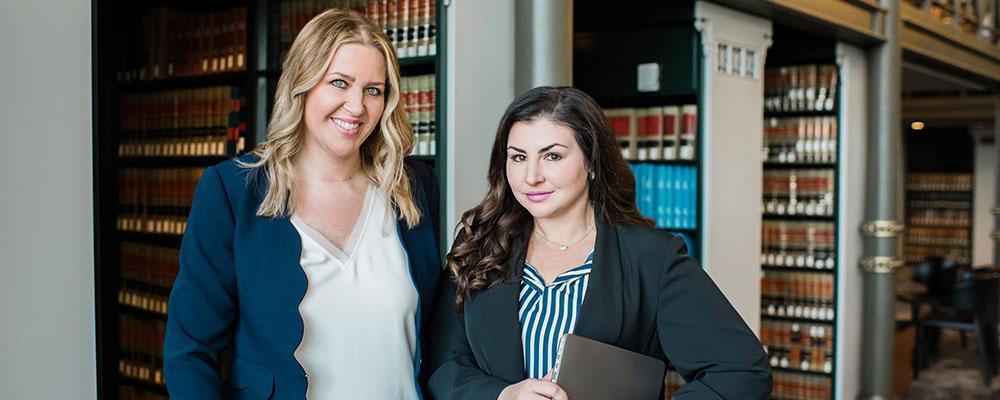116 N. York Street, 3rd Floor, Elmhurst, IL 60126
 312-605-4041
312-605-4041
Mediation Attorneys Serving Elmhurst, Park Ridge, and Chicago

Divorce Mediation Lawyers in Chicago, DuPage County, and Lake County
Divorce mediation is an alternative dispute resolution (ADR) technique which is sometimes implemented when those involved in a divorce are unable to reach mutually acceptable agreements, yet are willing to sit down with their spouses to create their own settlement. These agreements can relate to child custody, spousal support, asset division, or any number of other issues divorcing couples typically battle over. Mediation can also be used to negotiate the terms of a prenuptial or postnuptial agreement, resolution of parentage issues, or other family law matters that would otherwise create litigation. Mediation can be voluntary or may be court-ordered. If you are contemplating a mediated divorce, you need a mediator who is knowledgeable in the governing laws of Illinois.
Attorney Maxine Weiss Kunz is a certified mediator through the Center for Conflict Resolution and the Cook County Courts, making Weiss-Kunz & Oliver, LLC a valuable option for divorcing couples or other parties who are thinking about the possibility of mediation. In addition to bringing certified mediator status to the table, Weiss-Kunz & Oliver, LLC is comprised of highly-skilled family law attorneys who can assist separated couples with all issues related to the divorce.
Advantages to Divorce Mediation
Divorce ranks as one of the most traumatic experiences of a person’s life, therefore one of the primary advantages to mediation is that it can offer a less confrontational setting for spouses to voice their concerns without the fear of having the discussion turn contentious. Other advantages to divorce mediation include:
- The client may save money over a traditional divorce because both parties are using a single neutral and likely sharing that cost (the attorneys at Weiss-Kunz & Oliver, LLC offer lower hourly rates for mediation);
- Clients have more control over the discussions and the outcome, choosing topics they need assistance with, and having the final say over the settlement agreement;
- Clients engaging in divorce mediation are allowed to speak and be heard, as opposed to a family court judge who is likely overworked and understaffed and lacks the time to get to know you and your spouse;
- Communications, documents and work notes accumulated during the mediation sessions are privileged and confidential and are not to be used in litigation if mediation fails;
- Divorce mediation allows greater scheduling flexibility;
- Children are protected from conflict; and
- Mediated agreements tend to show greater post-judgment stability.
Disadvantages to Mediation
In some cases, there are simply too many hard feelings to allow both spouses to sit in the same room and discuss the disposition of assets, and custody of their children. Divorce mediators also have no power to compel either party to do something—such as reveal true income and assets. Since the success of mediation is entirely dependent on the cooperation and goodwill of the parties involved, when there is any concealment of facts, mediation will not work or at least may fail to flush out the lies. If there is significant anger or dishonesty involved in a divorce causing one party to seek vengeance or create a willingness to deceive the process, it is probably more realistic for the parties to undergo more traditional divorce procedures.
Many couples pursue mediation for the cost-savings benefits and expedited process, and new Illinois laws governing the mediation process may be applicable to your situation. Whether you are seeking Alternative Dispute Resolution (ADR) or other domestic relations procedures, you may be required to undergo involuntary financial mediation. Under new guidelines in the Circuit Court of Cook County, for example, each party and their representative mediators are required to attend mediation sessions, but are not compelled to reach an agreement during their sessions. The court-annexed mediation program includes both private mediators and those employed by Cook County. Maxine Weiss Kunz is on the certified list for appointment and offers reduced rates for her mediation services.
Mediation vs. Collaboration
Mediation is a voluntary process in which the spouses mutually reach decisions based on their individual and family circumstances. The mediator’s role is to remain neutral, manage the process, facilitate conversations and settlement options between the parties, and make sure both parties’ needs are heard and included in overall resolution. Collaborative divorce is better for those who feel they need more individual support and advocacy, when there is an imbalance in information, or when the parties are wholly unable to agree on anything despite their willingness to act in good faith and with full disclosure.
How We Can Help
If you and your spouse are at least able to discuss your divorce in a reasonable, fairly amicable matter, then mediation may be the best choice for you. Couples who can go through a mediated divorce are generally able to move on after the divorce much more quickly, and to get along with their ex after the divorce much better. Our attorneys can help clients decide whether mediation is right for them. We are skilled in helping clients with a mediated divorce or a traditional divorce. We will screen each of you individually if approached about mediation to ensure that mediation is the appropriate option for your case, including a screen to rule out domestic violence as mandated by the cannons of ethics. In the event we determine that mediation is not in the best interests of your case, then other recommendations will be made to promote a swift resolution of your case. Contact Weiss-Kunz & Oliver, LLC today.




















